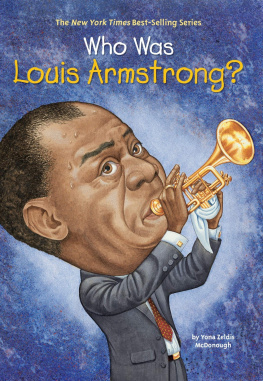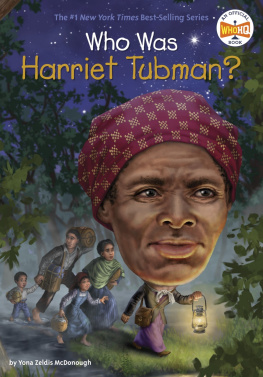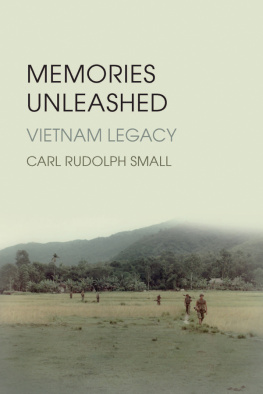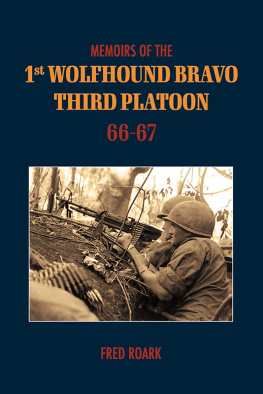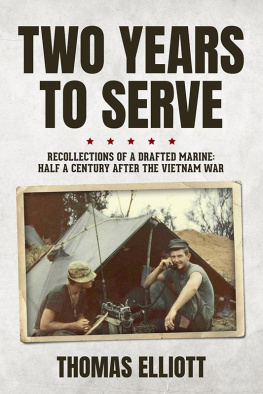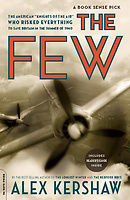Table of Contents
ENORMOUSLY VIVID ANDCOMPELLING...
[This book] pays welcome tribute to both the American soldiers and the Truong Lam villagers who suffered and died.... McDonough not only expresses his feelings of responsibility for his men and for the villagers they defended but also lays bare his personal fears and his realization of the fine line between rational leadership and irrational killing.
Booklist
McDonough spent five months with his platoon; in those five months, he learned a lot about tactics, weapons, andmost importantleadership. He learned to conquer his own fear, and, after that, how to control the mob instinct that gnaws at the inside of any army.... Platoon Leader is an honest guide to the touchy art of setting limits on violence.
St. Louis Post-Dispatch
Extraordinary glimpses of the chancy and hard life of the young men who actually did the fighting in Vietnam... For anyone interested in the daily grind of the combat soldier, this is a true portrayal.
The San Diego Union
McDonough is unusual: a military analyst who helped reshape the armys thinking... and a noteworthy author.
The Wall Street Journal
A CLASSIC ACCOUNT OF SMALL-UNIT LEADERSHIP DURING WAR ..
The experiences related in the book reinforce what we learn: disciplined soldiers will fight well, win, and survive to fight again.... McDonoughs story is also about the American soldier. The soldiers of his platoon were not Rambos or John Waynes. There were tough guys, scared guys, and laid-back soldiers. They were also men who fought for their friends, and for their country.
Armor Magazine
After writing my book on my World War II experiences, Company Commander, I eagerly awaited someone doing for the platoon leader what I had tried to do for the company commander.... Now my search at long last is over. With Platoon Leader, James McDonough has done it all and done it in a way that can hardly be beat.... The author writes without bravado, with intense honesty, and, most especially, with telling introspection about his emotions and reactions.... Jim McDonoughs story is what leadership at the foxhole level is all about.
CHARLES B. MACDONALD Army Magazine
Jim McDonough has written a superb book about leadership in combat. Although he disclaims any purpose other than to tell the story of a U.S. Army platoon leader in combat, his book is more than just a war story. It is a book about the U.S. soldier.... It is a book that every combat arms leader should read.
Infantry Magazine
AN EXCELLENT BOOK ABOUT WAR.
We learn a lot about what the Vietnam War was like and about how it was for the American units, and a little about the Vietnamese, its chief victims. But above all, perhaps, we learn about the Middle American Soul.... [McDonoughs] descriptions of some of his soldiers... are vivid. They are interlaced with a low-key patriotic assertion of the nobility of soldiering and of battle itself, of national interest and obedience, and of camaraderie, bravery, and fortitude.
The Jerusalem Post
A first-person account of the rigors and challenges that a young army lieutenant faces during his first six months in Vietnam... This is a factual book about war, young men conquering daily fears in the elements, knowing that if they are exposed long enough, they are challenging the odds.
Los Angeles Times
The author spells out, among other things, the process sometimes humorous, often painfulthrough which a neophyte fresh out of training becomes a combat veteran.... Most important of all, perhaps, McDonough learned that leading his men on and safely through difficult and dangerous missions involved confronting honestly his own fears of death or injury. The assorted characters in PlatoonLeaderbrave and cowardly, selfless and small-minded, inspiring and apatheticmake the psychological conflicts and resolutions in McDonoughs account at least as absorbing as the graphic battle scenes.
Sea Power Magazine
Sale of this book without a front cover may be unauthorized. If this book is coverless, it may have been reported to the publisher as unsold or destroyed and neither the author nor the publisher may have received payment for it.
Books published by The Ballantine Publishing Group are available at quantity discounts on bulk purchases for premium, educational, fund-raising, and special sales use. For details, please call 1-800-733-3000.
To those who served in our longest war. Though vilifiedand spurned by their countrymen, they honored theirnation and themselves.
To Pat, Jim, Mike, and Matt. They made a better worldthan they found.
Although the characters in this book are real and events are described as they happened, names have been changed to avoid renewing old griefs for loved ones.
PROLOGUE
Military men thrive on the telling of war stories. Contrary to the myth that men who have seen combat tend to keep it to themselves, I have found that we often talk too much about it. Forgive me, then, if this book appears to be another war story, for I make no claim to having experienced unique adventures in Vietnam. I feel now, as I felt then, that my own experience was relatively moderate. I am sure that many other units and many other men saw more action than did I or my platoon. If there were a contest to determine the number of hair-raising tales one could recount, I would hesitate to enter it. So many others have seen so much more.
Nor do I offer this book as the definitive description of the war in Vietnam. That would be impossible for anyone to do. The style of the war changed from year to year, from unit to unit, from place to place. There were no typical experiences. If anything was typical about the Vietnam experience, it was that it was different for everyone involved.
Since this book is neither an adventure yarn nor a definitive description of the war in Vietnam, one might ask, What is its purpose? In response I can only suggest that the book is about an American platoon leader in combat.
CHAPTER 1
AUGUST 1, 1971:LZ ENGLISH
Slowly the jeep pulls away, and I watch my driver, Phil Nail, trying hard to demonstrate his mastery over the alien vehicle. He has been driving only a few days, and his eyes dart nervously. His new job is a result of my final act of concern for the men of my former rifle platoon. Although Nail is uncomfortable, I am glad I had him transferred. As a rifleman, he was wounded three times. Hes been lucky so far, but I know the odds are against his pulling through a fourth wounding. The longer he allows himself to stay in the relative safety of LZ English, the base camp for the 173d Airborne Brigade, the more likely that he will survive to the end of his stay in Vietnam. Having him transferred is the one small gesture I can make before going home, an act I hope will lessen, if only minutely, my feelings of guilt for going home on my feet. How well I know that there are many Phil Nails still out there in the bush. For them I can do nothing.
In the hot sun I stand beside the short airstrip of LZ English, waiting for the helicopter to take me to Camranh Bay, where the DC-10 waits to take me home. It is a quiet morning. From my vantage point on the small, leveled hill that houses the airstrip, I can see across the barbed wire fence to the rice paddies and the village of Bong Son beyond. Amid the tall, green rice, Vietnamese peasants are toiling away, here and there a domesticated water buffalo performing the timeless chores of Southeast Asian farming. Smoke wafts up from countless small homes and huts in the crowded village. The smells of Asia drift across the runway, intensified by the warmth of the sun and the stillness of the day. How quiet and serene it seems. Only the sandbagged wooden hut at the edge of the airstrip reminds me that a war is in progress.
Next page

